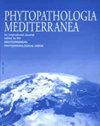Potato (Solanum tuberosum) - a new host for the root-knot nematode Meloidogyne inornata
IF 1.9
3区 农林科学
Q2 AGRONOMY
引用次数: 0
Abstract
The tropical root-knot nematode (RKN) Meloidogyne inornata infects soybean, tobacco, yacon, common bean and Anthurium andreanum. This species was reported as the cause of damage in commercial yacon production in Brazil, and has potential to cause losses to common bean crops. Potato (Solanum tuberosum L.) cv. Désirée infected with M. inornata exhibited typical RKN galls on roots and tuber surfaces, similar to those caused by the two quarantine pathogens M. chitwoodi and M. fallax, and the non-quarantine M. luci. This study has indicated that M. inornata has considerable potential to cause severe damage to potato tubers. The potential spread of this pathogen into new areas should be assessed, as it can damage potato tubers and could be a problem for economically important crops. Ensuring pest-free seed potatoes is important to prevent dissemination and establishment of M. inornata in uninfested areas. Phytosanitary measures and monitoring programmes developed to prevent spread of this pest in Europe may be warranted.马铃薯(Solanum tuberosum)——根结线虫新寄主
热带根结线虫感染大豆、烟草、鸭舌兰、蚕豆和红掌。据报道,该物种是巴西商业雅康生产受损的原因,并有可能对普通豆类作物造成损失。感染M.inornata的马铃薯(Solanum tuberosum L.)cv.Désirée在根和块茎表面表现出典型的RKN galls,类似于由两种检疫病原体M.chitwoodi和M.fallax以及非检疫M.luci引起的。这项研究表明,M.inornata有相当大的潜力对马铃薯块茎造成严重损害。应该评估这种病原体向新地区的潜在传播,因为它会损害马铃薯块茎,并可能成为重要经济作物的问题。确保马铃薯种子无虫害对于防止M.inornata在无感染地区传播和建立非常重要。为防止这种害虫在欧洲传播而制定的植物检疫措施和监测方案可能是有必要的。
本文章由计算机程序翻译,如有差异,请以英文原文为准。
求助全文
约1分钟内获得全文
求助全文
来源期刊

Phytopathologia Mediterranea
生物-植物科学
CiteScore
4.40
自引率
8.30%
发文量
28
审稿时长
6-12 weeks
期刊介绍:
Phytopathologia Mediterranea is an international journal edited by the Mediterranean Phytopathological Union. The journal’s mission is the promotion of plant health for Mediterranean crops, climate and regions, safe food production, and the transfer of new knowledge on plant diseases and their sustainable management.
The journal deals with all areas of plant pathology, including etiology, epidemiology, disease control, biochemical and physiological aspects, and utilization of molecular technologies. All types of plant pathogens are covered, including fungi, oomycetes, nematodes, protozoa, bacteria, phytoplasmas, viruses, and viroids. The journal also gives a special attention to research on mycotoxins, biological and integrated management of plant diseases, and the use of natural substances in disease and weed control. The journal focuses on pathology of Mediterranean crops grown throughout the world.
The Editorial Board of Phytopathologia Mediterranea has recently been reorganised, under two Editors-in-Chief and with an increased number of editors.
 求助内容:
求助内容: 应助结果提醒方式:
应助结果提醒方式:


